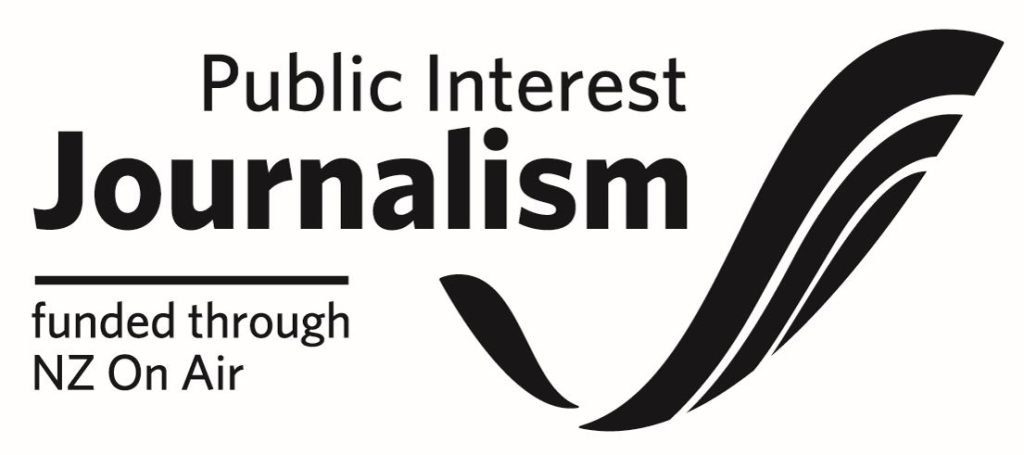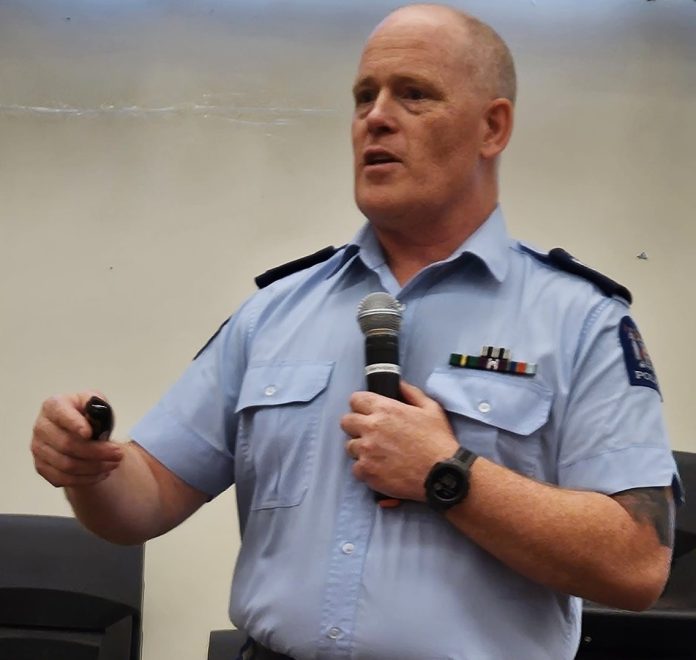(above:) Senior Sergeant Gareth Brown, NZ Police. photo / Migrant News
By Ricky Matthew
AUCKLAND – As we approach 15 March, the 5th Anniversary of the Christchurch Mosque attack, the NZ Police and community leaders have been discussing a pressing concern – the ongoing safety and security at events and religious spaces.
The Social Cohesion hui on this topic organised by the Auckland Police Ethnic Services last month at Mt Eden War Memorial Centre was timely due to the conclusion of the recent inquest into the response times of police and emergency services, the medical response at the Christchurch Mosque and whether more lives could have been saved.
Moving forward, the NZ Police are pushing a narrative of collaboration to ensure the safety of communities. “There are steps you can take to make your gatherings or your place of worship safe,” Senior Sergeant Gareth Brown, CMD Crowded Places Lead advised community leaders.
He pointed out that an often-overlooked facet of security is the features of the venue itself. Understanding your building layout and its strengths and weaknesses can make a life-saving difference.
“You need to put a plan in place around the security and evacuation procedures. There are simple things that you can do. One example is making sure everyone knows where the toilets are. Making sure that toilets can lock from the inside. If someone were to come and try to hurt people, do you have the ability for people to go into these toilets and lock the doors and then lie on the ground and be safe?
“A lot of places I’ve seen have natural perimeters, even if it’s a low fence. You can have your people walking around and just patrolling. A potential offender, if they see someone walking around, then it makes it look like a hard target. It makes them think ‘oh, I’ve got to get past him’. It’s as simple as that. You can have a couple of guys yakking away and walking around. It’s a very simple process. If you see someone jumping over the fence line or the perimeter, then you’ve got the power to stop them and say, ‘what are you doing?’
“If you are running an event, then you need to arrange for security. You can talk to private security, or you can just go to your local police station and say that you are running an event. We will have a look at the risk and put it over a risk matrix. If we can provide staff to support you, then we will do that as police.”
“If you type ‘crowded places’ on the police website, there are steps to make your gatherings safe and there is also a survey and if you score below a certain point then you need to get in touch with police before your gathering or before that event, because we need to talk to you seriously about how to protect you and your community.”
Large scale events such as those at Eden Park and the Cloud often employ the expertise of private security. “By all means use it,” prompted Gareth. “They work for you, so you tell them what to do and they will manage everything.”
Towards the end of the meeting, Gareth commented on the dedication of police in defending the community. “I totally agree that people need to feel safe in their places of work, at home, in schools, in places of worship and at community gatherings.
“The officers on the street, when we arrive, will do our absolute best to look after you. That is all we care about. When there is a person with a firearm, we run towards that person. If there is gunfire, we will run towards the gunfire. We will go as fast as we can. My wife says, ‘be safe’ every day when I go work. I expect the risk of being shot or stabbed every day. That doesn’t bother me. That’s what I do. However, do we get things right every time? No, we are human beings. We make mistakes and learn from them,” explained Gareth.
He encouraged communities to voice their concerns about safety concern in their neighborhood by reaching out to local authorities. “We also raise these issues with government and local boards. Do we get the answers we want? Not always. It’s just the process you go through. But if you have a concern then raise it with your local district police. They can raise it with the district commander, who will raise it to the commissioner and so on.”
The dialogue between communities and law enforcement represents a pivotal step towards enhancing safety in public spaces. The collaborative approach encourages proactive engagement, with both parties working together to implement effective safety measures, making events, retail outlet, and religious spaces more secure for everyone.
As Andrew Coster, Commissioner of New Zealand Police said in an interview with Mervyn Singham, the Chief Executive of the Ministry for Ethnic Communities: “We are very much of the view that police officers are the community and the community is the police. In other words, we’re not an elite organization; we are not set apart from the community. We’re most successful when we’re able to engage and to work in partnership with the community, because safety comes from the community and community leaders taking ownership of their own space with the police in support.”





